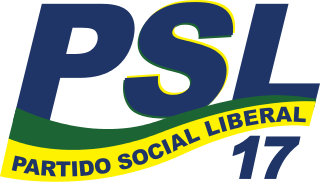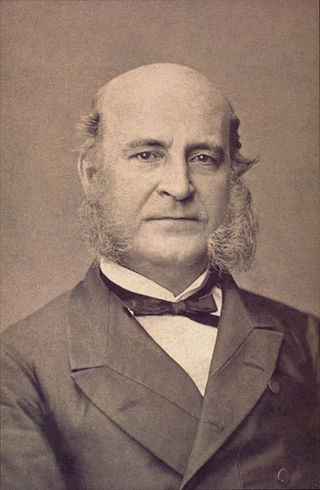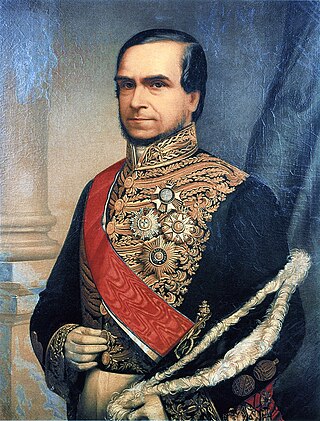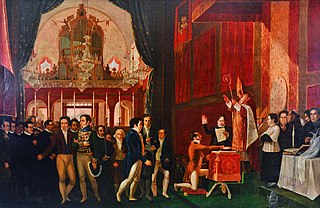
The Workers' Party is a centre-left political party in Brazil that is currently the country's ruling party. Some scholars classify its ideology in the 21st century as social democracy, with the party shifting from a broadly socialist ideology in the 1990s, although the party retains a left-wing and marginal far-left faction to this day. Founded in 1980, PT governed at the federal level in a coalition government with several other parties from 1 January 2003 to 31 August 2016. After the 2002 parliamentary election, PT became the largest party in the Chamber of Deputies and the largest in the Federal Senate for the first time. With the highest approval rating in the history of the country at one time, President Luiz Inácio Lula da Silva was PT's most prominent member. Dilma Rousseff, also a member of PT, was elected twice but did not finish her second term due to her impeachment in 2016. The party came back to power with Lula's victory in the 2022 presidential election.

The National Congress is the legislative body of Brazil's federal government. Unlike the state legislative assemblies and municipal chambers, the Congress is bicameral, composed of the Federal Senate and the Chamber of Deputies. The Congress meets annually in Brasília from 2 February to 22 December, with a mid-term break taking place between 17 July and 1 August.

The Social Liberal Party was a far-right political party in Brazil, that merged with the Democrats and founded the Brazil Union. Founded in 1994 as a social-liberal political party, the PSL was registered on the Superior Electoral Court in 1998.

The Authentic Radical Liberal Party is a liberal and radical political party in Paraguay. The party is a full member of Liberal International. The liberales, as they are known, are the leading opposition to the dominant conservative Colorado Party. They have taken this position since the end of the Alfredo Stroessner dictatorship in 1989. They are the political successors of the Liberal Party, which traces its history back to 10 July 1887.
Since the beginning of liberalism in Portugal in the 19th century, several parties have, by gaining representation in parliament, continued the liberal ideology in contemporary Portuguese politics. But after the initial fervor of the Liberal Revolution of 1820 and the outcome of the Liberal Wars (1828–1834) during the 19th century, liberalism was relegated to a secondary role in Portuguese politics and government and even outlawed for periods of time. The first fully-fledged liberal party founded as such to have a seat in the Portuguese Parliament since the end of the First Portuguese Republic (1910–1926), was the Liberal Initiative, in 2019.
Cidadania is a Brazilian political party. It was originally founded as the Popular Socialist Party by members of the former Brazilian Communist Party (PCB), as a centre-left social democratic and democratic socialist party. Despite its left-wing alignment, PPS moved to be opposition against the Workers' Party since 2004, forming alliances with centre-right parties, in particular the Brazilian Social Democracy Party (PSDB), and supporting the Impeachment of Dilma Rousseff. Later the party's National Convention adopted the new naming in March 2019, and it was later approved by the Superior Electoral Court that September. The party then began moving towards a more social liberal position akin to the third way.
A big tent party, or catch-all party, is a political party having members covering a broad spectrum of beliefs. This is in contrast to other kinds of parties, which defend a determined ideology, seek voters who adhere to that ideology, and attempt to convince people towards it.

The Republicans, formerly the Brazilian Republican Party and originally formed as the Municipalist Renewal Party, is a Brazilian political party. Its electoral number, the numerical assignment for Brazilian political parties, is 10.

The Liberal Party is a liberal-conservative political party in Brazil. From its foundation in 2006 until 2019, it was called the Party of the Republic.

José Maria da Silva Paranhos, Viscount of Rio Branco, was a Brazilian politician, monarchist, diplomat, teacher and journalist. Rio Branco was born in Salvador, in what was then the Captaincy of Bahia, to a wealthy family, but most of the fortune was lost after his parents' deaths early in his childhood. In 1871, Rio Branco became the president of the Council of Ministers for the first time. He would become the Council's longest-serving president, and his cabinet the second longest, in Brazilian history. His government was marked by a time of economic prosperity and the enactment of several reforms. The most important of these initiatives was the Law of Free Birth, which granted freeborn status to children born to slave women. Rio Branco led the government that enacted this law, and its passage increased his popularity. His government was plagued by a long crisis with the Catholic Church that resulted from the expulsion of Freemasons from its lay brotherhoods. After more than four years heading the Cabinet, Rio Branco resigned in 1875. Following a long vacation in Europe, his health swiftly declined and he was diagnosed with oral cancer. Rio Branco died in 1880 and was widely mourned throughout the country. He is regarded by most historians as one of Brazil's greatest statesmen.

The Political Constitution of the Empire of Brazil commonly referred to as the Constitution of 1824, was Brazil's first constitution, issued on 25 March 1824 and revoked on 24 February 1891. In force during the period of the Empire of Brazil, it was issued at the emperor's request, that is, unilaterally imposed by the will of emperor Pedro I, who had ordered it from the Council of State. Pedro had dissolved the Constituent Assembly in 1823 and, through the Constitution of 1824, imposed his own political project on the country. The same Pedro later issued, in Portugal, the Constitutional Charter of 29 April 1826, inspired by the Brazilian model.

Honório Hermeto Carneiro Leão, Marquis of Paraná was a Brazilian politician, diplomat, judge and monarchist. Paraná was born to a noble family in São Carlos do Jacuí, in what was then the captaincy of Minas Gerais. After attending the University of Coimbra in Portugal and having returned to Brazil, Paraná was appointed a judge in 1826 and later elevated to appellate court justice. In 1830, he was elected to represent Minas Gerais in the Chamber of Deputies; he was re-elected in 1834 and 1838, and held the post until 1841.
Conservatism in Brazil designates the movement originated from certain cultural traditions of Brazil, as well as the relationship with Portuguese-Iberian cultural roots and diverse influences. The movement received influences from Roman heritage and part of Greek philosophy in its foundation in Christianity.

Lulism is a political ideology describing the 2006 consolidation of segments of Brazilian society previously hostile to social movements and the Workers' Party behind political forces led by President Luiz Inácio Lula da Silva, appealed by a controlled reformism and limited structural change focused on the poorest sections of society. The lower classes, who had distanced themselves from Lula, accepted his candidacy after his first term as President as the middle class turned from him. The rhetoric and praxis which united the maintenance of stability and state distributism are the origins of Lulism. While advocating socialism, Lulism aims for a 'social liberal' approach that gradually resolves the gap between the rich and the poor in a market-oriented way.

The Brazilian Patrianovist Imperial Action, Pátria-Nova, or simply Patrianovism, was a monarchist organization that was present in many Brazilian states and that expressed the nationalist ideals of the 1920s and 1930s. Idealized by Arlindo Veiga dos Santos, it sought to establish a new organic monarchy in Brazil based on traditionalist policies, unlike what the now-defunct Empire of Brazil, which the patrianovists saw as liberal.

The Brazil Union is a liberal-conservative political party in Brazil. The party was founded on 6 October 2021 through the merger of the Democrats (DEM) and the Social Liberal Party (PSL). The merger resulted in the biggest party in Brazil, and was approved by Brazil's Superior Electoral Court on 8 February 2022.

The regency period is how the decade from 1831 to 1840 became known in the history of the Empire of Brazil, between the abdication of Emperor Pedro I, on 7 April 1831, and the declaration of majority of Pedro II, who was legally declared of age by the Senate at the age of 14 on 23 July 1840.

Brazilian Party refers to a political organization formed in Brazil during the United Kingdom of Portugal, Brazil and the Algarves after the Liberal Revolution of 1820.














